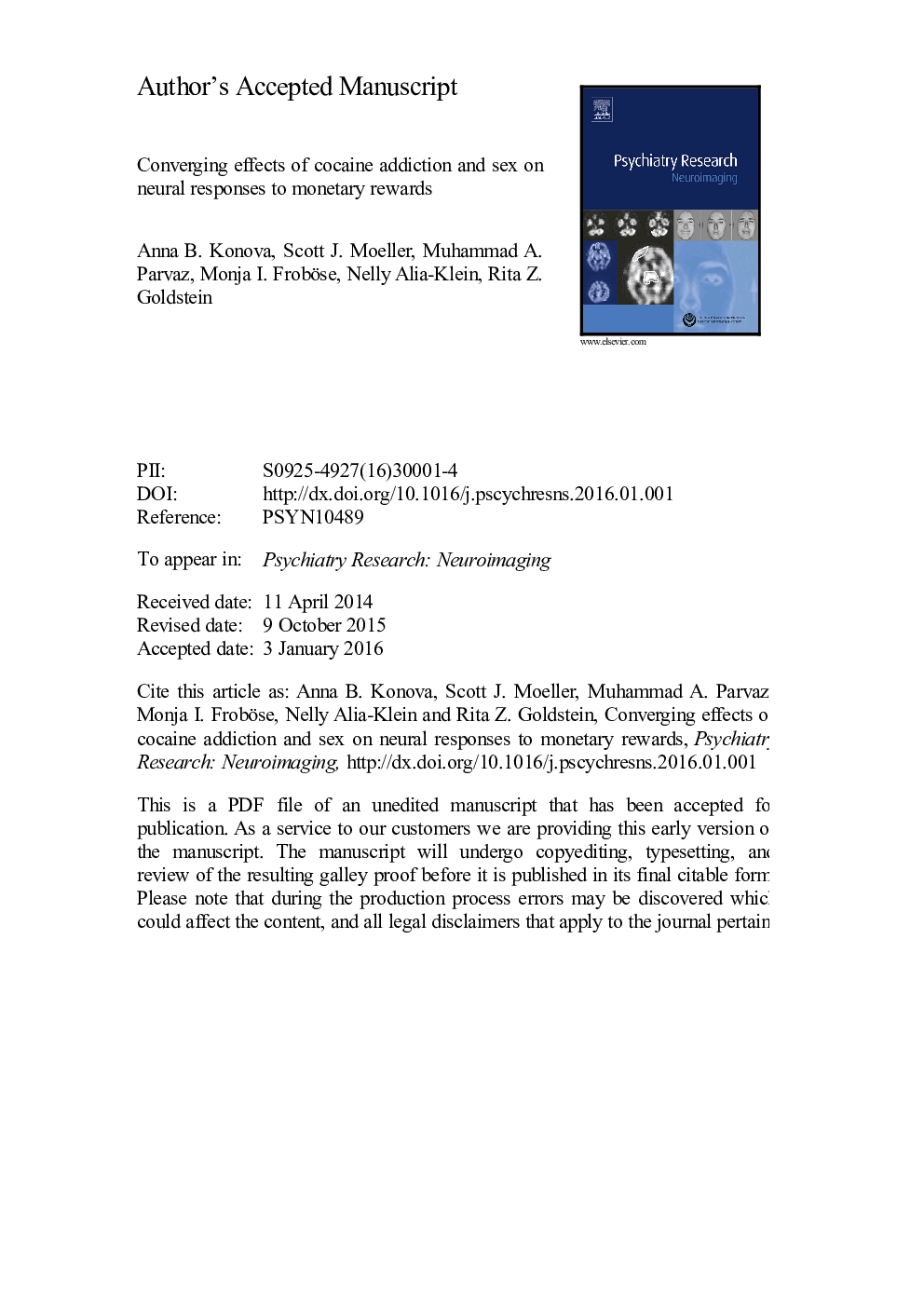| Article ID | Journal | Published Year | Pages | File Type |
|---|---|---|---|---|
| 6817253 | Psychiatry Research: Neuroimaging | 2016 | 34 Pages |
Abstract
There is some evidence that cocaine addiction manifests as more severe in women than men. Here, we examined whether these sex-specific differences in the clinical setting parallel differential neurobehavioral sensitivity to rewards in the laboratory setting. Twenty-eight (14 females/14 males) cocaine-dependent and 25 (11 females/14 males) healthy individuals completed a monetary reward task during fMRI. Results showed that the effects of cocaine dependence and sex overlapped in regions traditionally considered part of the mesocorticolimbic brain circuits including the hippocampus and posterior cingulate cortex (PCC), as well as those outside of this circuit (e.g., the middle temporal gyrus). The nature of this 'overlap' was such that both illness and female sex were associated with lower activations in these regions in response to money. Diagnosis-by-sex interactions instead emerged in the frontal cortex, such that cocaine-dependent females exhibited lower precentral gyrus and greater inferior frontal gyrus (IFG) activations relative to cocaine-dependent males and healthy females. Within these regions modulated both by diagnosis and sex, lower activation in the hippocampus and PCC, and higher IFG activations, correlated with increased subjective craving during the task. Results suggest sex-specific differences in addiction extend to monetary rewards and may contribute to core symptoms linked to relapse.
Related Topics
Life Sciences
Neuroscience
Biological Psychiatry
Authors
Anna B. Konova, Scott J. Moeller, Muhammad A. Parvaz, Monja I. Froböse, Nelly Alia-Klein, Rita Z. Goldstein,
